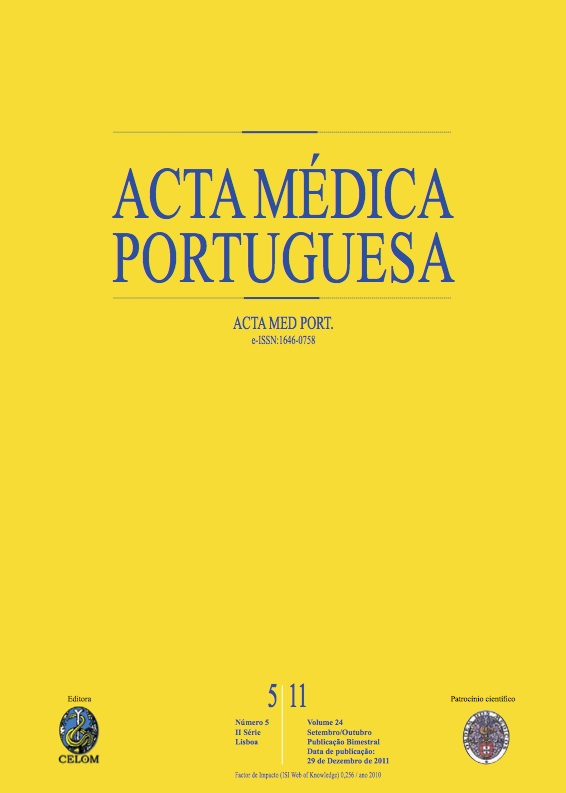Breast cancer at Pico Island (1998-2008): an epidemiological perspective.
DOI:
https://doi.org/10.20344/amp.520Abstract
Neoplasic disease has been assuming an increasingly relevant role in the world's public health. Breast cancer is the most common cancer and the second cause of death by neoplasia in women. In the Portuguese population, breast cancer is the main cause of death by neoplasia in females. Among the Azorean women, the most frequently diagnosed malignant tumor is breast cancer, Pico Island being the third in terms of cancer incidence in the region. The risk factors are well known, well established and some of them can be prevented. Despite the great incidence of breast cancer, in the general population, particularly among the youngest, the knowledge about the disease is quite limited. The aims of this study are to characterize and identify the risk factors of women with breast cancer diagnose between 1998 and 2008 residing in Pico's island and, simultaneously to evaluate the knowledge of the students in Pico island about this disease.The method used for the gathering of the data in both cases was an anonymous and confidential questionnaire. In study 1 the questionnaire was conducted by an interviewer after the women's consent. Study 2 was performed in the three secondary schools of Pico island.The incidence rate of breast cancer in Pico island women is higher than the national incidence rate. There was an enormous variability in the incidence rates calculated for each year, with no clear tendency. The main responsible for the appearance of breast cancer in this population could be a conjugation of factors and not only a single isolated factor. The risk factors that stand out are: sedentariness (71.4%), family history (47.6%) and obesity (44.4%). The 295 students interviewed aged between 15 and 21 years. Of the total, 43 had relatives with breast cancer, however the majority (56.3%) assumes to be little informed about this disease.Through study 1 we conclude that there is a combination of hereditary and environmental risk factors, modifiable and non modifiable risk factors that may contribute to the onset of breast cancer. It is important to encourage changes in the life style of the women and rising of awareness towards risk factors. For the study of the student population, we conclude that the students have a very limited degree of knowledge of the disease; however, they assumed the will to more information, which leaves an open door for future formation and awareness actions.Downloads
Downloads
How to Cite
Issue
Section
License
All the articles published in the AMP are open access and comply with the requirements of funding agencies or academic institutions. The AMP is governed by the terms of the Creative Commons ‘Attribution – Non-Commercial Use - (CC-BY-NC)’ license, regarding the use by third parties.
It is the author’s responsibility to obtain approval for the reproduction of figures, tables, etc. from other publications.
Upon acceptance of an article for publication, the authors will be asked to complete the ICMJE “Copyright Liability and Copyright Sharing Statement “(http://www.actamedicaportuguesa.com/info/AMP-NormasPublicacao.pdf) and the “Declaration of Potential Conflicts of Interest” (http:// www.icmje.org/conflicts-of-interest). An e-mail will be sent to the corresponding author to acknowledge receipt of the manuscript.
After publication, the authors are authorised to make their articles available in repositories of their institutions of origin, as long as they always mention where they were published and according to the Creative Commons license.









